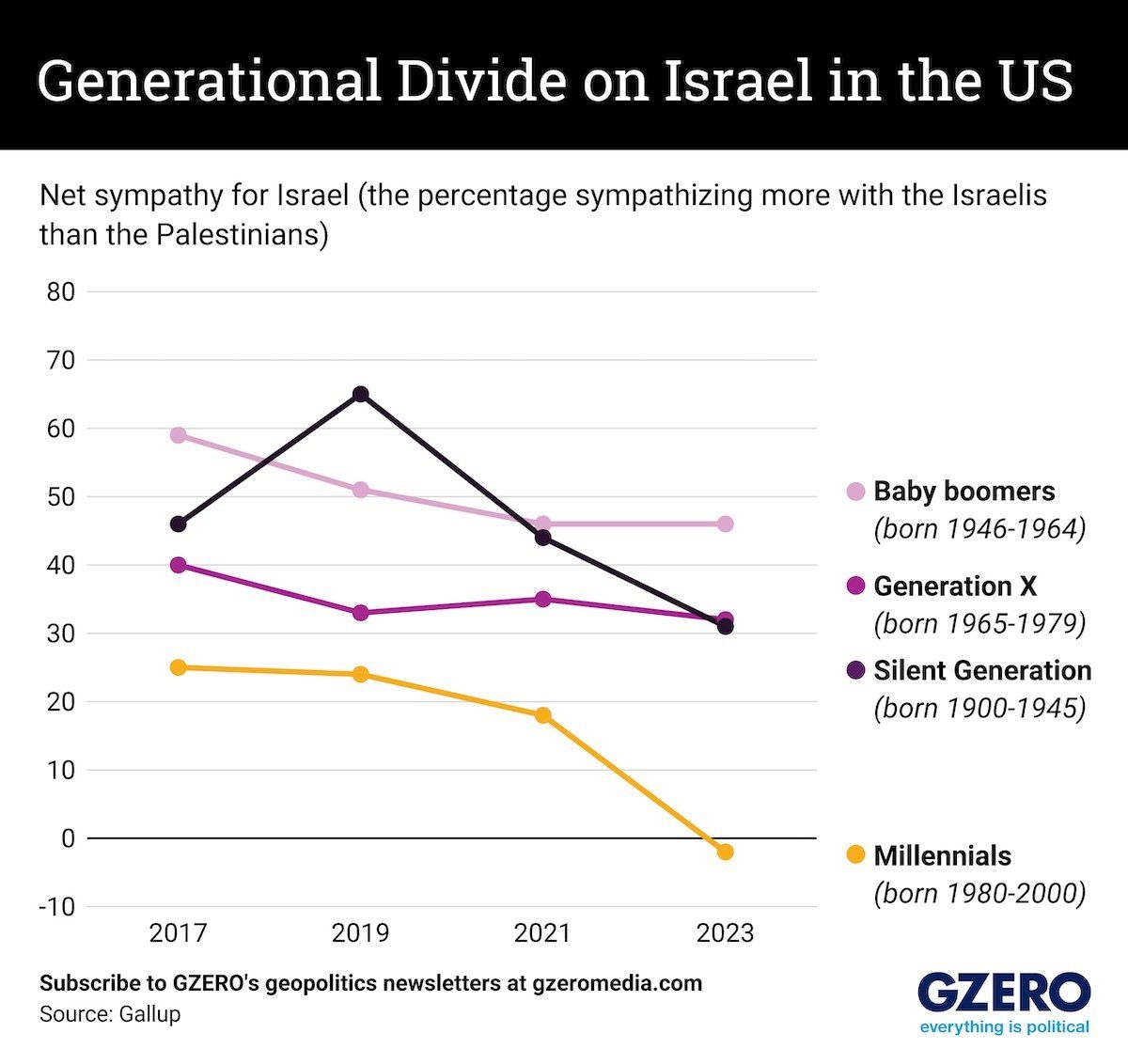The Israel-Hamas war has sparked heated debates and demonstrations across the US – particularly on college campuses – as the Palestinian death toll continues to rise. As many young people express pro-Palestinian sentiments in a country that has long supported Israel, pundits and commentators have blamed social media platforms like TikTok.
But what we’re seeing is also part of a long-term trend that points to a stark generational divide over the Arab-Israeli conflict. Polling from recent years shows that younger generations in the US have increasingly become more sympathetic toward Palestinians than Israel.
In 2017, Gallup polling found net sympathy toward Israelis versus Palestinians among millennials was at +25%. By March 2023, that had dropped to -2% among millennials. Comparatively, net sympathy for Israelis among older generations has held relatively steady and is much higher in general.
Similarly, a Pew Research Center poll from 2022 found only 41% of those aged 18-29 and 49% of those aged 30-49 had a favorable view of Israel, compared to 60% of those aged 50-64 and 69% of those aged 65 or older.
The generational divide is also evident among American Jews. A 2021 survey from the Jewish Electorate Institute, for example, found that younger US Jews were more likely than older Jews to agree with sharply critical statements about Israel. The survey showed that 43% of Jewish voters under 40 agreed that “Israel's treatment of Palestinians is similar to racism in the US," compared to 32% of Jewish voters between 40-64 and 27% of those older than 64.
Generational disagreement continues today. A recent Gallup poll found only 30% of Americans aged 18-34 approve of Israel’s military action in Gaza, compared to 50% of those aged 35-54 and 63% of those who are 55 and older.
